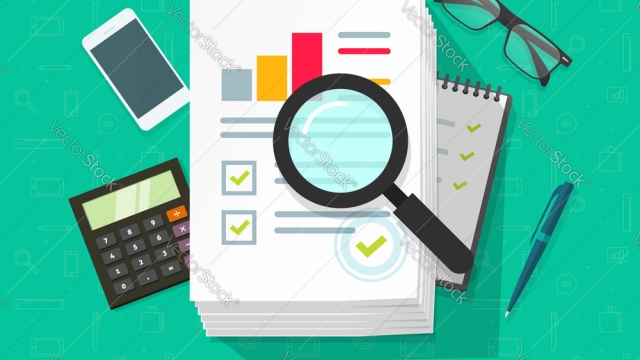
Research and data analysis are powerful tools that can unlock valuable insights and inform decision-making across various domains. In today’s data-driven world, organizations and individuals alike rely on comprehensive research and meticulous data analysis to gain a competitive edge, solve complex problems, and uncover underlying patterns. By delving into the realms of research, we can embark on a fascinating journey of exploration and discovery, enabling us to derive meaningful conclusions and make well-informed choices.
Research forms the foundation upon which groundbreaking discoveries are built. It involves a systematic investigation of a particular topic, aiming to expand our knowledge and understanding. Whether conducted in academic settings, scientific laboratories, or business environments, research allows us to explore new theories, validate existing assumptions, and challenge established norms. It takes us beyond the confines of uncertainty, enabling us to contribute to the collective knowledge of humankind.
Data analysis, on the other hand, takes the raw material of research – data – and transforms it into actionable insights. With an abundance of information available at our fingertips, analyzing and interpreting data becomes paramount in extracting valuable nuggets of knowledge. Through various statistical techniques and visualization tools, data analysis plunges into the depths of information, uncovering patterns, correlations, and trends that might otherwise remain hidden. This analytical prowess empowers us to make informed decisions based on evidence rather than intuition.
The amalgamation of research and data analysis is a formidable force that propels progress and innovation across industries. It fuels scientific breakthroughs, leads to evidence-based policies, and drives business strategies forward. By embracing the power of research and data analysis, we open doors to a multitude of possibilities, providing us with the means to unravel complexities and guide our actions towards success.
In this article, we will explore the intricate world of research and data analysis, delving into their significance, methodologies, and the potential they hold for unlocking insights. Join us on this enlightening journey as we uncover the secrets behind effective research and harness the power of data analysis to gain a deeper understanding of the world around us. Get ready to unveil the hidden treasures that lie within research and data analysis, and unleash their potential for personal and professional growth.
Understanding the Research Process
Research plays a pivotal role in unleashing the power of data analysis. It is a systematic process that enables us to gather and analyze relevant information, helping us make informed decisions and uncover valuable insights. Through research, we can delve deep into the subject matter, identify patterns, and draw meaningful conclusions.
The research process typically begins with defining the research objective or question. This step is crucial as it sets the foundation for the entire study. By clearly defining the purpose of the research, we can determine the scope, target audience, and the specific data required for analysis.
Once the objective is established, the next step involves collecting data. This can be done through various methods such as surveys, interviews, experiments, or by analyzing existing datasets. The choice of data collection method depends on the nature of the research and the information needed to answer the research question effectively.
After gathering the data, it is time to analyze and interpret it. Data analysis allows us to uncover trends, draw connections, and detect underlying patterns that might not be immediately apparent. By applying statistical techniques, visualizations, and other analytical tools, researchers can extract meaningful insights from the collected data.
Custom Research Paper Writing Services
Throughout the research process, it is essential to maintain accuracy, reliability, and ethical considerations. Researchers must ensure the validity of their data, avoid bias, and adhere to ethical guidelines to uphold the integrity of their findings. These measures not only ensure the credibility of the research but also contribute to the overall trustworthiness of the data analysis.
Understanding the research process is fundamental to harnessing the power of data analysis effectively. By employing a systematic approach and adhering to rigorous methodologies, researchers can unlock valuable insights that can inform decision-making, drive innovation, and enable progress in various fields.
Importance of Data Analysis
Data analysis plays a significant role in the world of research. By analyzing data, researchers can gain valuable insights and uncover meaningful patterns, trends, and correlations. It allows them to make sense of complex information and draw accurate conclusions. Data analysis helps researchers make informed decisions, validate hypotheses, and contribute to the development of new knowledge.
One of the main reasons data analysis is important is its ability to provide evidence-based results. By examining data systematically, researchers can avoid biases and ensure the reliability of their findings, thereby increasing the credibility of their research. This is especially crucial in fields such as medicine, social sciences, and business, where accurate and valid results are essential.
Furthermore, data analysis allows researchers to identify and understand relationships between variables. Through statistical techniques and visualization tools, researchers can uncover hidden patterns and correlations that may not be immediately apparent. This deeper understanding of relationships empowers researchers to make informed predictions, effectively plan interventions, and develop evidence-based strategies.
Additionally, data analysis plays a significant role in the identification of trends and patterns over time. By analyzing historical data, researchers can identify changes, trends, and shifts in various phenomena. This temporal perspective enables them to understand the evolution of a situation, develop projections, and anticipate future scenarios. Whether it is tracking climate change, studying market trends, or examining public opinion, data analysis helps identify important patterns that shape our understanding of the world.
In conclusion, data analysis is of utmost importance in the world of research. It helps researchers gain insights, make evidence-based decisions, understand relationships, and identify trends. By harnessing the power of data, researchers can unlock valuable knowledge and contribute to the advancement of various disciplines.
Applying Insights and Making Informed Decisions
In the world of research and data analysis, gathering valuable insights is just the beginning. The true power lies in applying those insights effectively to make informed decisions. With the right approach, businesses and organizations can transform data into actionable strategies that drive success.
Applying insights involves careful consideration of the research findings and understanding how they apply to real-world scenarios. It requires attention to detail and the ability to interpret complex data sets. By digging deeper into the research, patterns and trends become more apparent, helping decision-makers see the bigger picture.
Once insights have been identified, it is essential to turn them into practical recommendations. This process involves extracting the most relevant information and tailoring it for specific contexts. By providing actionable recommendations, decision-makers can take the necessary steps to optimize their operations or develop new strategies based on the insights gained.
Efficiently making informed decisions relies on the integration of insights with existing knowledge and expertise. The combination of research findings and industry experience empowers decision-makers to evaluate multiple perspectives and weigh the potential risks and benefits. This holistic approach ensures that decisions are grounded in data, minimizing uncertainties and increasing the likelihood of positive outcomes.
In summary, the value of research and data analysis is maximized when insights are applied effectively to drive informed decisions. By carefully analyzing the data, transforming insights into actionable strategies, and integrating new knowledge with existing expertise, organizations can unleash the full potential of research and data analysis, leading to improved performance and growth.






